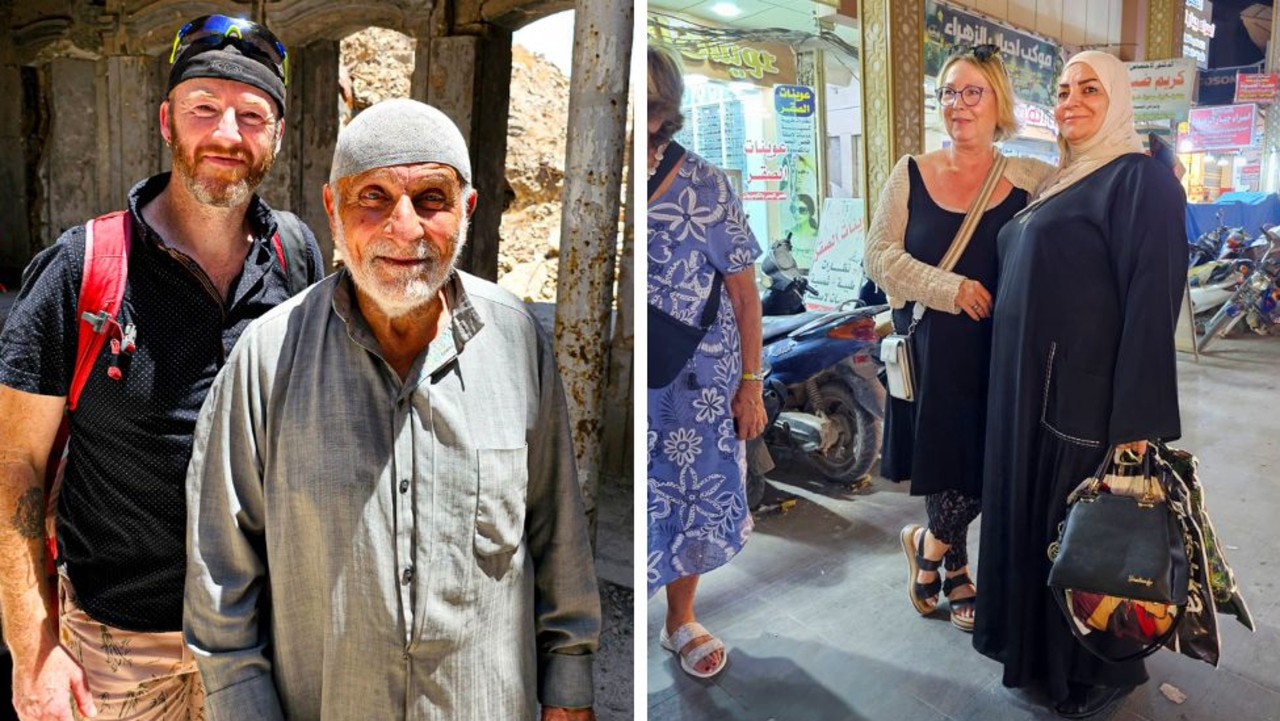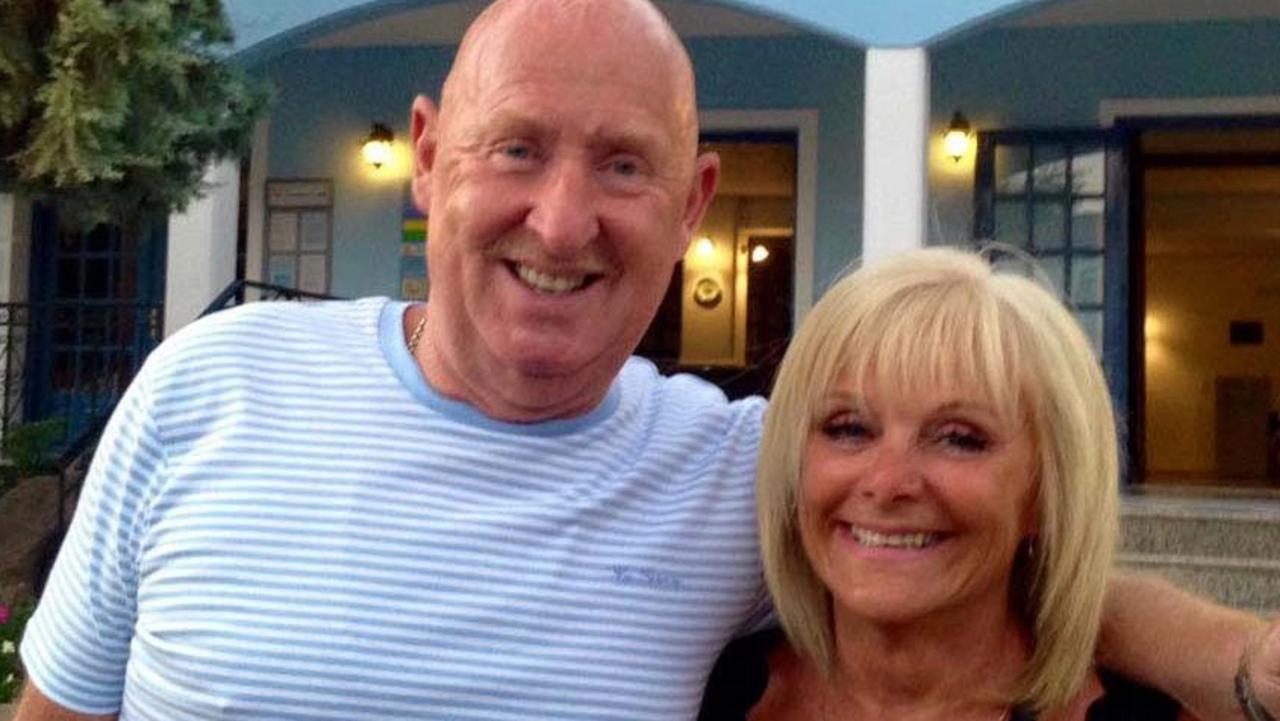Nairobi attack: Terrorists strike upscale hotel complex DusitD2 in Kenya
A shocking terrorist attack has led to scenes of unimaginable horror at a luxury hotel - just metres away from the Australian consulate.
A deadly terrorist attack has taken place just a few hundred meters away from the Australian High Commission in Kenya’s capital, Nairobi.
At least six people were killed and about 14 others were injured in the attack when al-Shabaab terrorists launched a bomb and gun rampage on the DusitD2 upscale hotel complex.
Australia’s High Commission in Kenya is “making urgent inquiries” with local authorities after a violent incident.
A Department of Foreign Affairs and Trade spokesman told News Corp: “At this time, we are not aware of any Australians being affected.”
News Corp understands all staff within the Australian embassy are safe.
Foreign Affairs Minister Marise Payne has also been approached for comment.
The devastating attack took place at 3pm local time yesterday (11pm AEDT), and was carried out by the same terrorist organisation that killed 67 people at a nearby shopping centre in 2013.

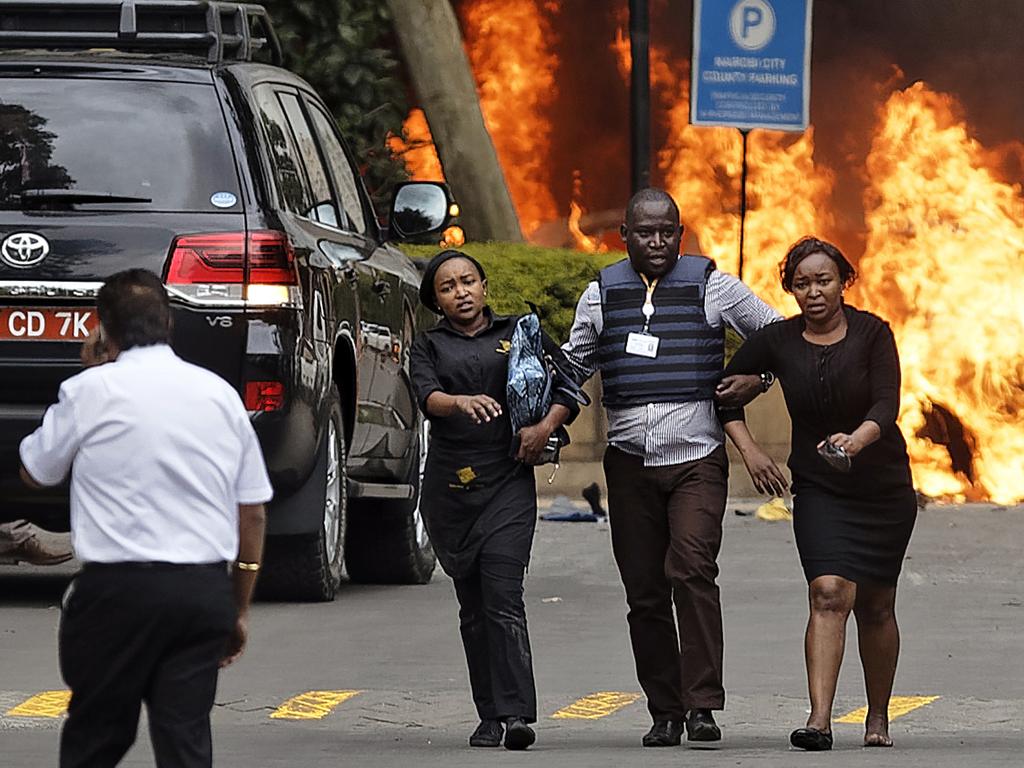
Australian High Comissioner to Kenya, Tanzania, Uganda and Rwanda is yet to personally post anything about the attack on Twitter, but re-tweeted a Smart Traveller warning earlier today.
“#Nairobi. On 15 January 2019, an attack occurred at the DusitD2 hotel complex in Nairobi. Pay close attention to your personal security at all times and be alert to possible new security risks,” it read.
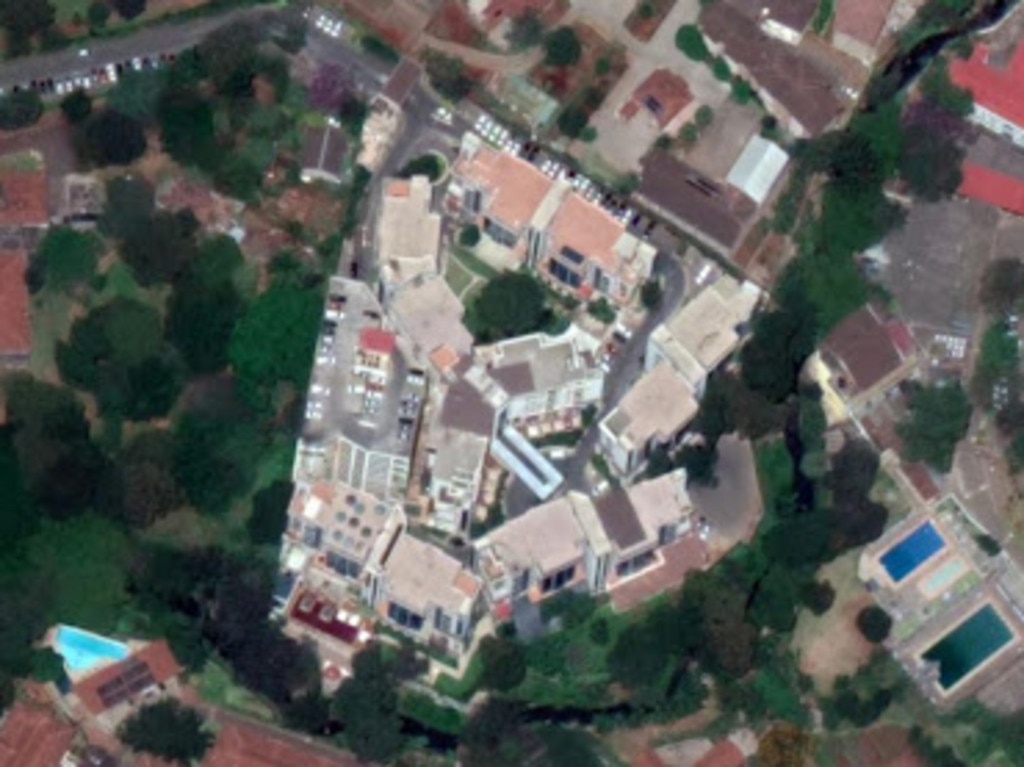
The High Commission’s office is about 500 metres from the hotel complex - known as 14 Riverside Drive - which includes bars, restaurants, offices and banks and is in a well-to-do neighbourhood with many American, European and Indian expatriates.
It is also home to companies including BASF, Colgate Palmolive, Reckitt Benckiser, Pernod Ricard, Dow Chemical and SAP, as well as the DusitD2 hotel, part of the Thai hotel group Dusit Thani.
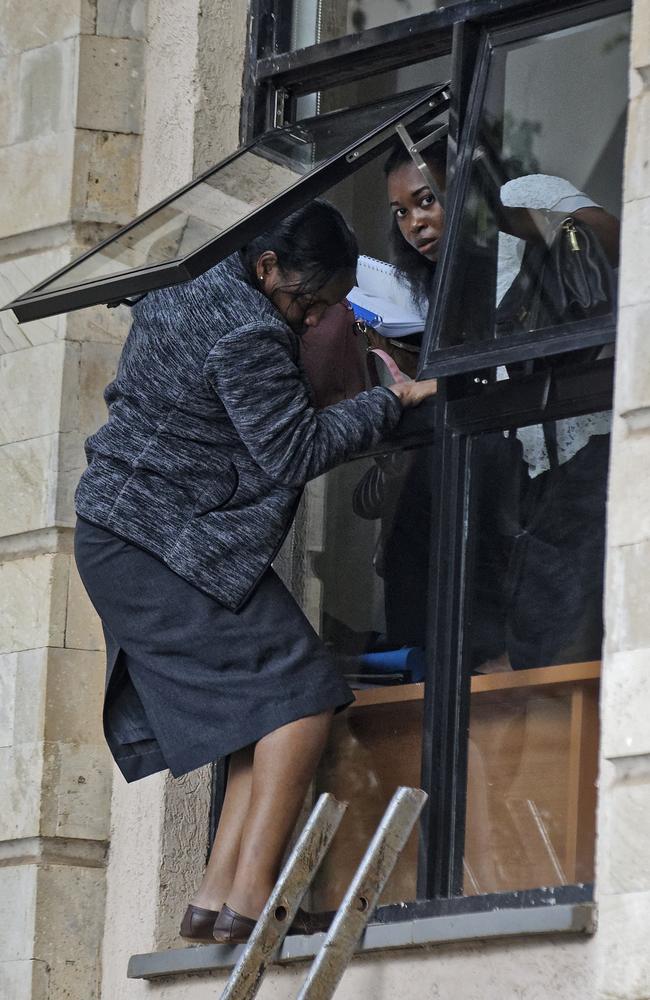
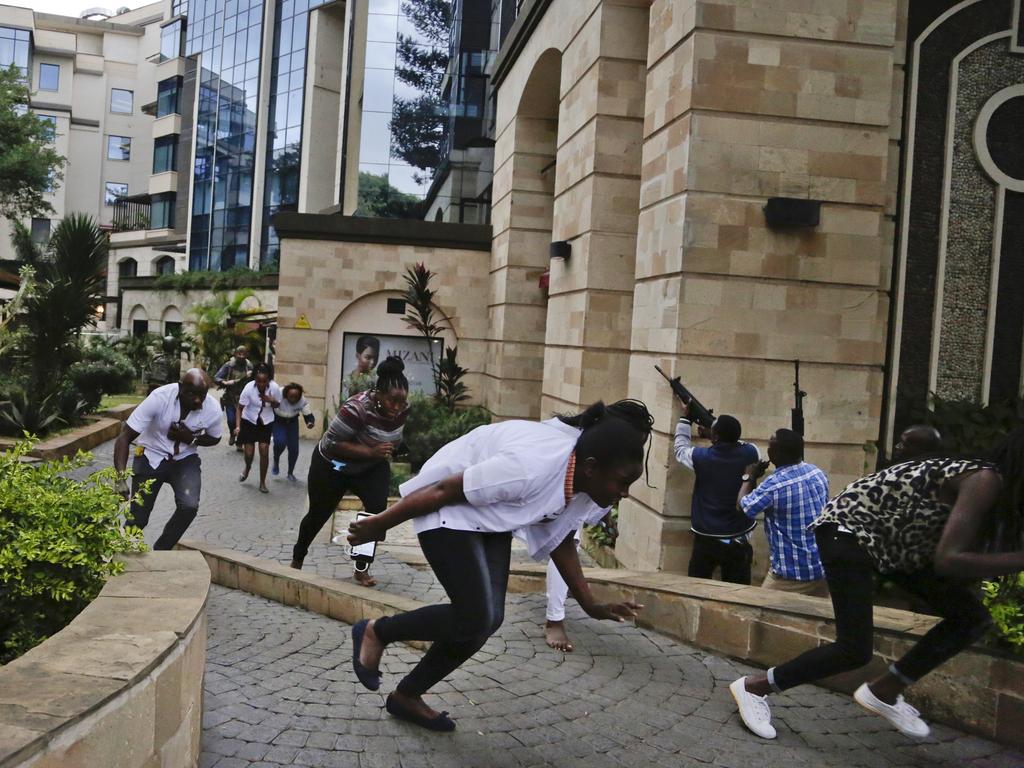
The coordinated assault began with an explosion that targeted three vehicles outside a bank, and a suicide bombing in the hotel lobby that severely wounded a number of guests, said Kenya’s national police chief, Joseph Boinnet.
Survivors reported hearing a shattering blast and saw people mowed down by gunmen as they sat in a cafe. Victims were left lying on tables, bleeding.
Live video from Nairobi's Westlands #RiversideAttack pic.twitter.com/t1zefVPbMl
— James Okong'o (@okongojim) January 15, 2019
“We were changing our shifts, and that is when I heard a loud blast and people were screaming,” said Enoch Kibet, who works as a cleaner at the cafe and managed to crawl out a basement gate.
“I couldn’t believe I was alive. The blast was so loud and shook the whole complex.”
Serge Medic, a Swiss owner of a security company who assisted victims, recounted the harrowing scene.
“The main door of the hotel was blown open and there was a human arm in the street severed from the shoulder,” Mr Medic said.
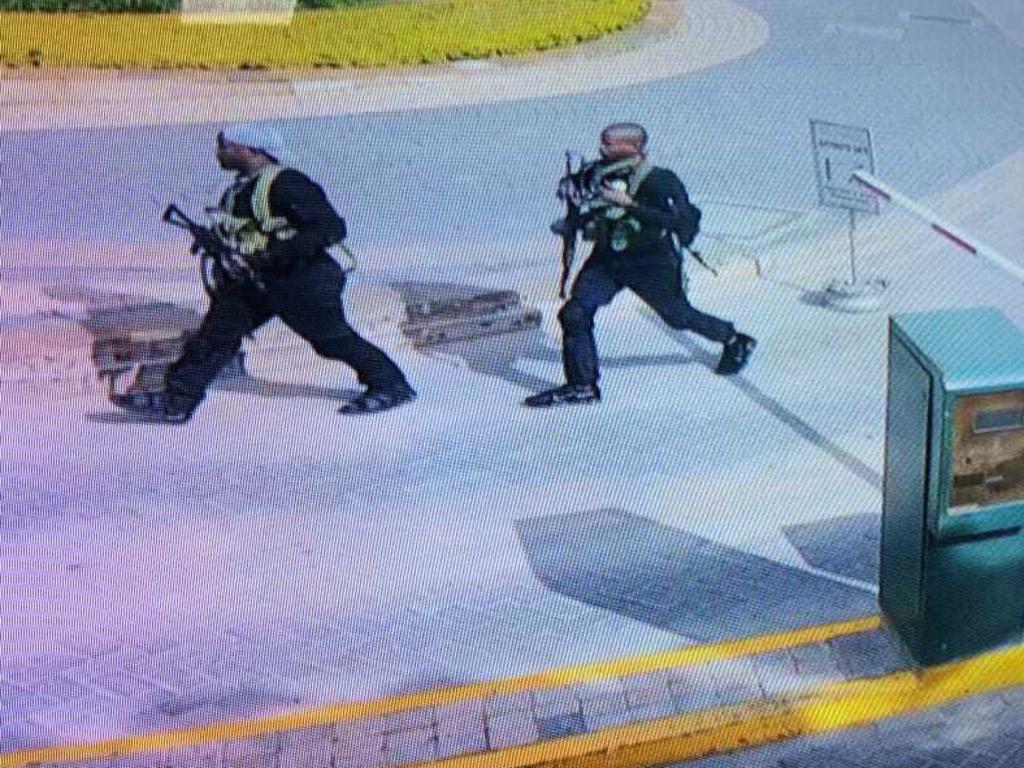
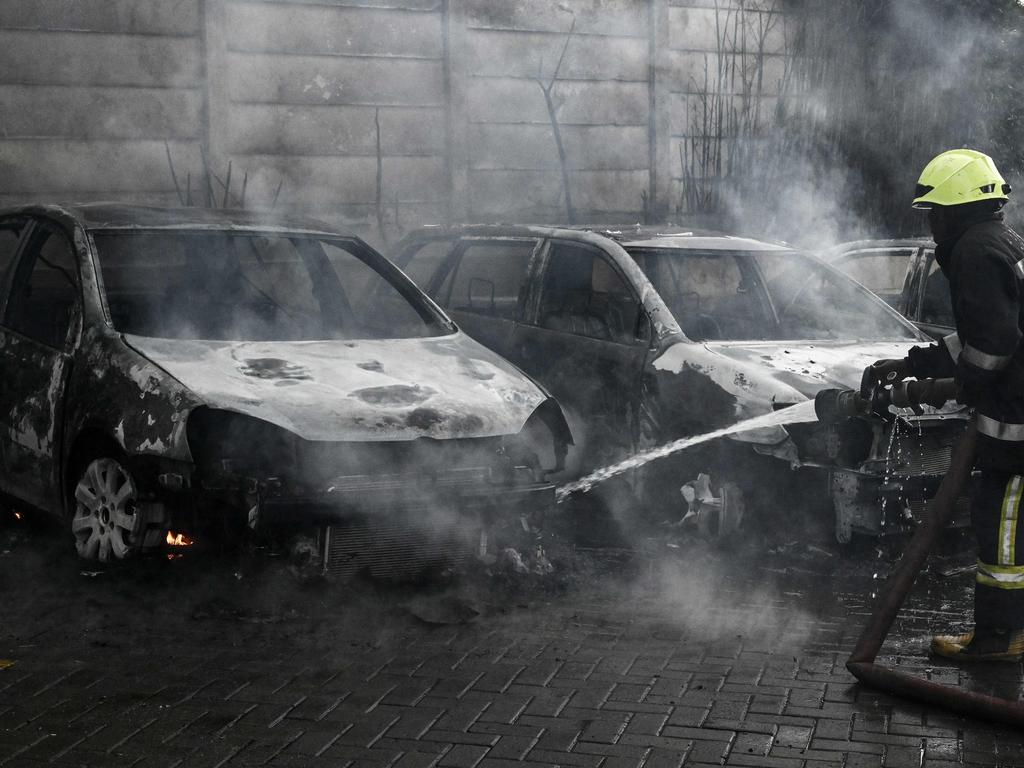
A police officer who spoke on condition of anonymity because he was not authorised to talk to the media said that bodies were seen in restaurants downstairs and in offices upstairs, but “there was no time to count the dead.”
Further, a witness who gave his name only as Ken said he saw five bodies at the hotel entrance.
He said that other people were shouting for help and “when we rushed back to try to rescue them, gunshots started coming from upstairs, and we had to duck because they were targeting us and we could see two guys shooting.”
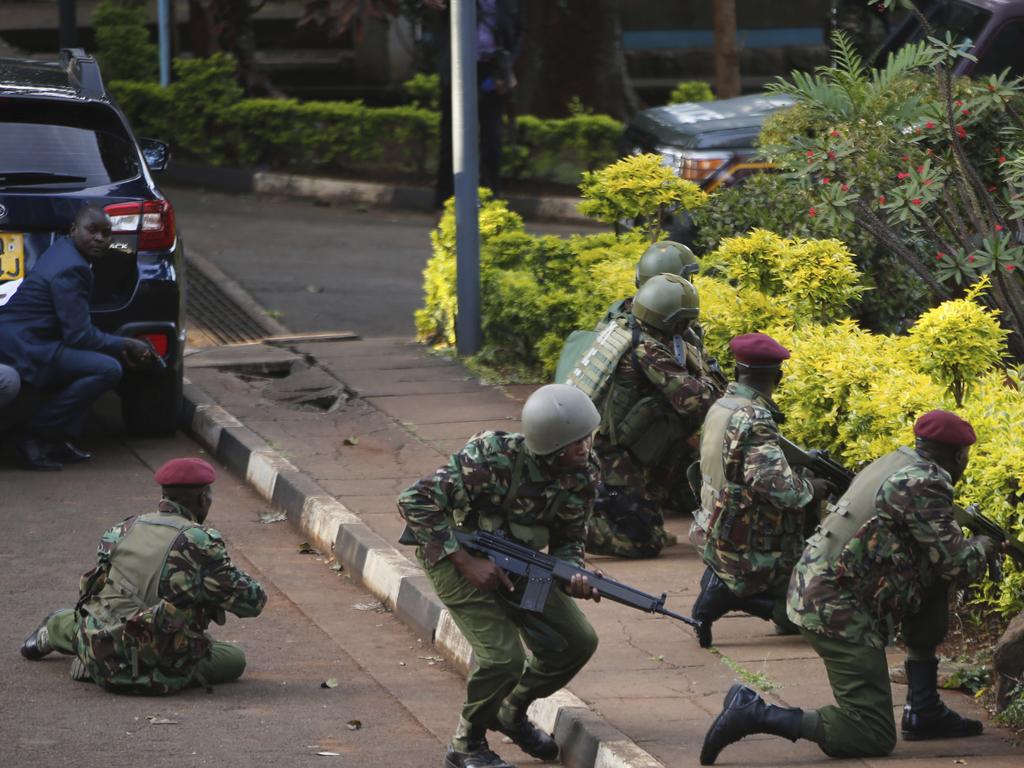
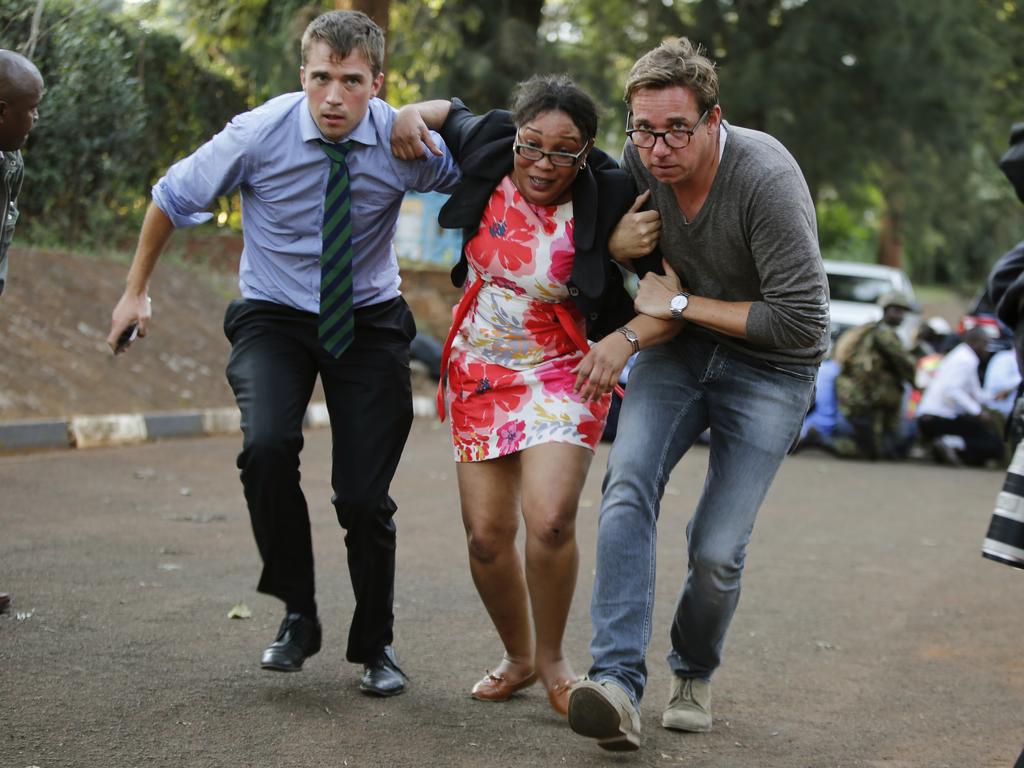
Authorities sent special forces into the hotel to flush out the gunmen, and late on Tuesday night - about eight hours after the siege began - Interior Minister Fred Matian’i said that all of the buildings affected by the attack had been secured.
“I would like to reiterate that the situation is under control and the country is safe,” he said.
However, more gunfire was heard about an hour later, Kenyan broadcaster NTV reported. And some family members said they had been in touch with loved ones still hiding inside the complex, waiting to be rescued.
Matian’i did not disclose the number of dead and wounded. Authorities did not say how many attackers there were - or what happened to them - though Kenya’s Citizen TV aired security-camera footage that showed at least four heavily armed men in dark-coloured paramilitary-style gear.
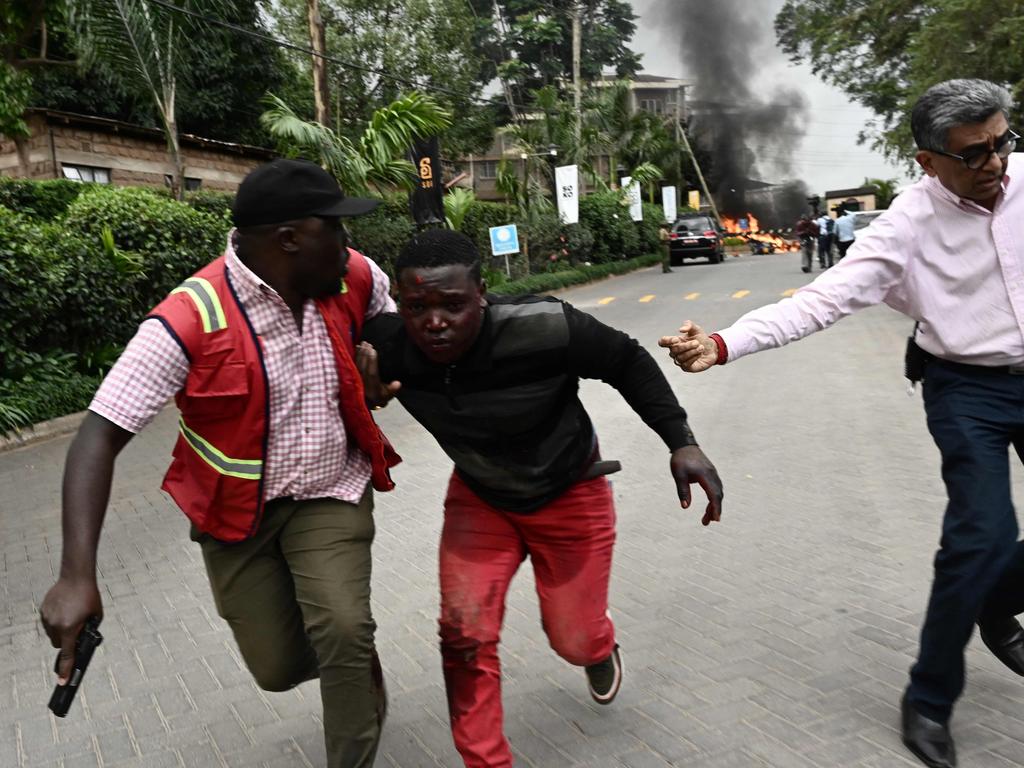
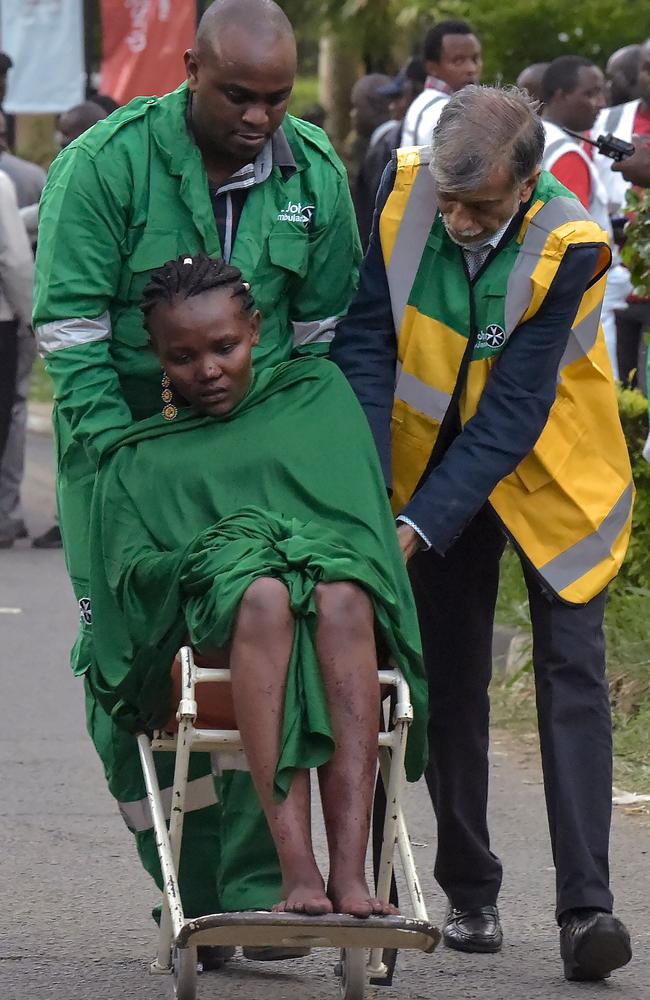
The attack immediately reminded many Kenyans of the Westgate Mall attack in Nairobi in 2013, when al-Shabaab extremists burst into the luxury shopping centre, hurling grenades and starting a days-long siege that left 67 people dead.
Much like the siege of 2013, this one appeared aimed at wealthy Kenyans and foreigners living in the county, and came a day after a magistrate ruled that three men must stand trial in connection with the terror incident.
Al-Shabaab has vowed retribution against Kenya for sending troops to Somalia since 2011. The al-Qaeda-linked group has killed hundreds of people in Kenya.
In 2015, al-Shabaab claimed responsibility for an attack on Kenya’s Garissa University that killed 147 people, mostly students.
Tuesday’s violence also came three years to the day after al-Shabab extremists attacked a Kenyan military base in Somalia, killing scores of people.
Despite the repeated attacks, the Kenya-Somalia border remains porous, with al-Shabaab extremists able to easily bribe their way across, according to a United Nations panel.


